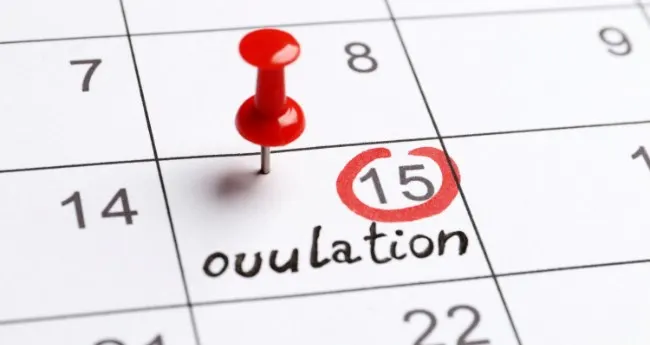What is Ovulation Fatigue: Causes, Symptoms & Ways to Feel Energized

If you feel exhausted in the middle of your menstrual cycle, you might just be experiencing what is known as ovulation fatigue. After ovulation, feeling tired is quite normal. This phenomenon is experienced by women and does not always get the attention it deserves. Ovulation is an integral part of the menstrual cycle. It takes place in the middle of the cycle and marks the period when an egg is released from the ovary.
Some women experience lethargy and fatigue, which makes them feel particularly tired. However, it is important to note that not every woman has the same symptoms. Ovulation fatigue can have an adverse effect on a person’s daily routine and energy levels. It is important to understand why the fatigue occurs and how to manage it when necessary.
Causes of Ovulation Fatigue Symptoms of Ovulation Fatigue Managing Ovulation Fatigue
Causes of Ovulation Fatigue
Ovulation fatigue is very much real and normal. Numerous women have reported being affected by it. Let’s find the answer to the question why does ovulation make one feel ridiculously tired.
- Hormonal Fluctuations: During ovulation, the female body is confronted with significant hormonal changes. These changes involve oestrogen and progesterone. These hormones help regulate the menstrual cycle and have physiological effects on the bearer.
One of the downsides of ovulation is excessive vaginal discharge. But fret not, like always, Always has your back. Always has a variety of panty liners that you can choose from to deal with pesky discharge. The Always Extra Protect panty liners with their odour neutralizing technology and extra long size will make you forget you are ovulating. If that is not enough, its breathable design will keep you dry all day long.
Hormonal imbalance is hard enough, so Always has your back at all times when it comes to prioritising your needs. Some women experience a boost of energy when their oestrogen level peaks right before ovulation. However, once ovulation takes place, progesterone rises while oestrogen drops, causing fatigue to set in. This ebb and flow can lead to women feeling exhausted during ovulation.
Increased Metabolic Rate: A person’s metabolic rate increases around ovulation as the body tries to accommodate a potential pregnancy. Higher levels of metabolism may require more energy and this in turn leads to body aches and fatigue during ovulation. At such times, the body is working overtime to support the heightened functions, which means it has less energy for regular activities. This causes extreme fatigue after ovulation.
Physical and Emotional Stress: If the hormonal and metabolic shifts were not enough, women experience physical and emotional stress too. Women could be more sensitive to stressors during this time, leading to exhaustion ovulation. The deadly combination of emotional and physical stress can make resting a task and ultimately lead to exhaustion.

- Diet and Lifestyle: If one maintains a poor diet and lifestyle while ovulating then it can further affect discomfort during and after ovulation. Not getting adequate exercise can intensify ovulation fatigue in people experiencing it.
Symptoms of Ovulation Fatigue
Symptoms of ovulation fatigue affect women differently. Listed below are a few indicators:
Persistent Tiredness: If a person is feeling tired relentlessly to the point that it affects their day-to-day activities, then it could mean that they are suffering from ovulation fatigue.
Concentration Issues: Another indicator that a woman is suffering from ovulation fatigue is that she is struggling with focusing and maintaining attention. This, in turn, could result in decreased levels of productivity.
Physical Symptoms: Body aches and fatigue during ovulation is a common occurrence. During ovulation, women often deal with sore muscles and a general feeling of sluggishness that they cannot get rid of.
Mood Changes: Women experience mood swings that are a direct result of hormonal fluctuations. Hormonal fluctuations can cause an increase in emotional sensitivity. Hence, it is essential to take care of oneself during one's menstrual cycle.
Experiencing one or more of any of the above symptoms points towards ovulation fatigue. If you have any of these symptoms you must act swiftly to keep discomfort away.
Managing Ovulation Fatigue
Managing ovulation fatigue involves addressing both lifestyle and physiological factors. Here are some strategies:

Balancing Hormones: You can take measures to maintain hormonal balance so that your emotions are better regulated. For instance, you can consume a balanced diet, get adequate sleep and even visit a doctor for supplements that could help regulate hormones.
Stress Management Techniques: Making use of stress management techniques such as mindfulness, meditation and deep-breathing exercises can alleviate your emotional burden and help you feel less exhausted after ovulation.
Regular Exercise: Exercise is your friend when it comes to giving your energy levels the boost, they need during ovulation. Moderate exercise helps deal with extreme fatigue after ovulation.
Adequate Hydration: Ensure you are staying hydrated so that your natural bodily processes are not interrupted. Also, staying hydrated reduces symptoms of exhaustion ovulation.
Ovulation fatigue is as real a problem for many women as menstrual cramps. While it is absolutely normal to experience tiredness during ovulation and exhaustion after it, it is important to get to the bottom of why these symptoms occur, as they can lead to better management strategies. Addressing lifestyle factors, maintaining hormonal balance and employing stress-reduction techniques can considerably reduce feelings of extreme fatigue after ovulation. If nothing works and fatigue continues to plague your body, you must consult with a healthcare provider and not resort to self-medicating. Listening to your body is important to holistic health and well-being.
Check out the Period Calculator Tool on our website so that you can track your menstrual cycle and ovulation to stay ahead of potential mood swings and discomfort.
Disclaimer:
Please note the date of the last review or update on all articles. No content on this site, regardless of date, should ever be used as a substitute for direct medical advice, diagnosis or treatment from your doctor or other qualified clinician. Always is committed to ensuring that all of our products meet rigorous safety standards; Always pads prioritize safety, protection and comfort of its consumers.





